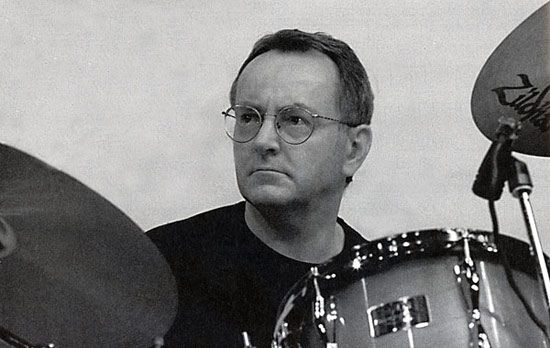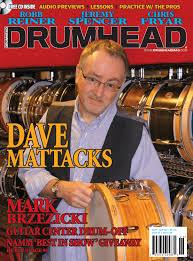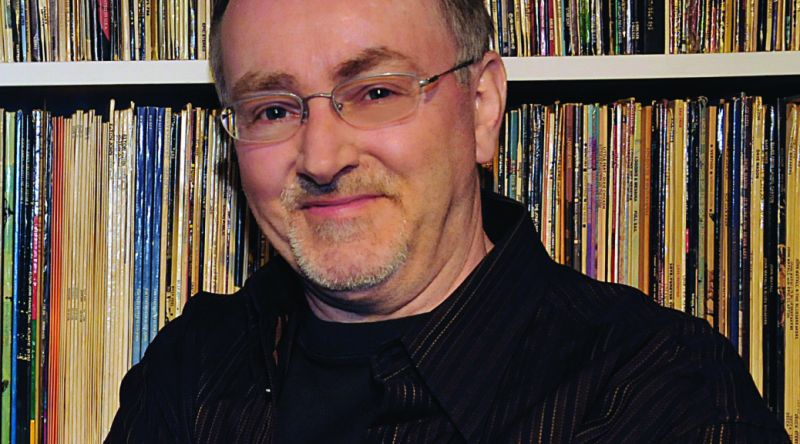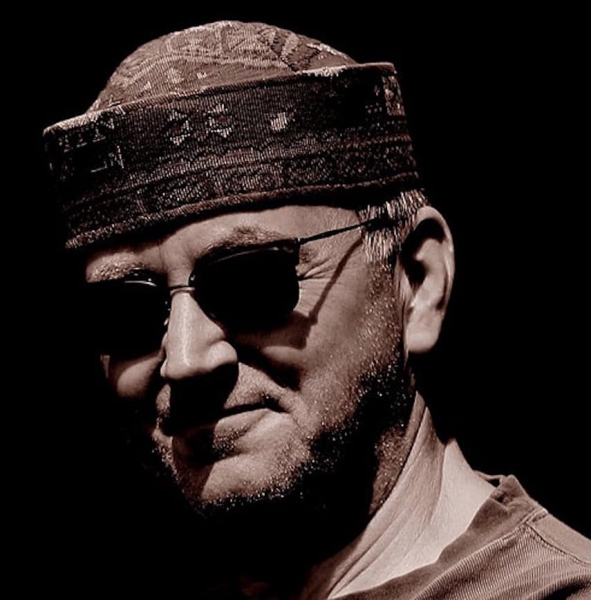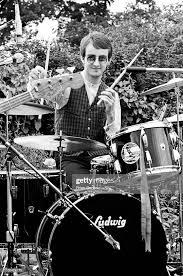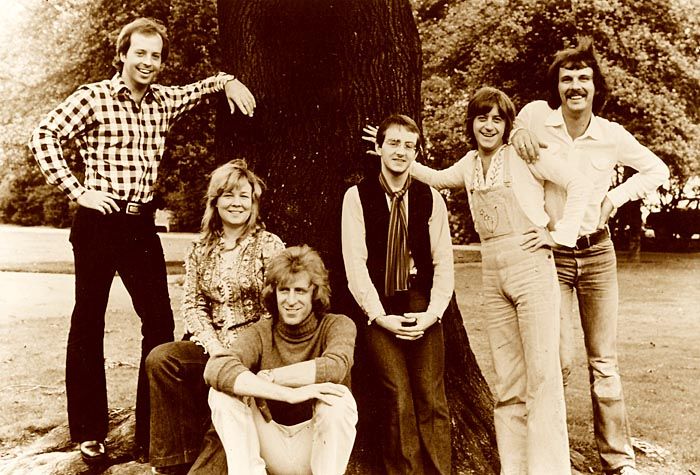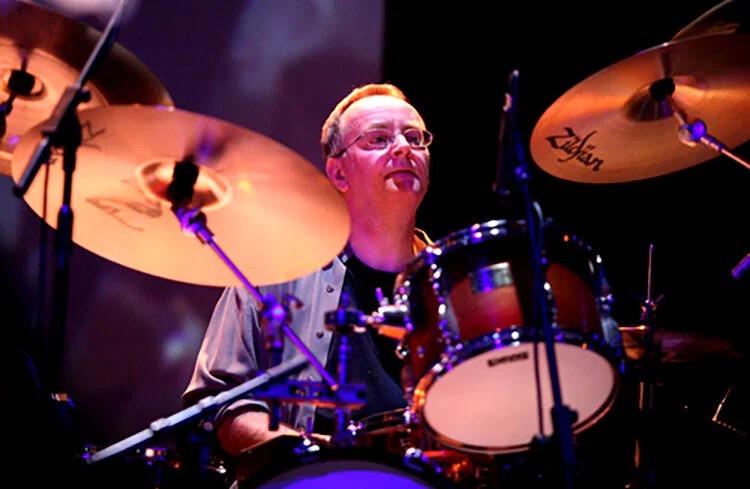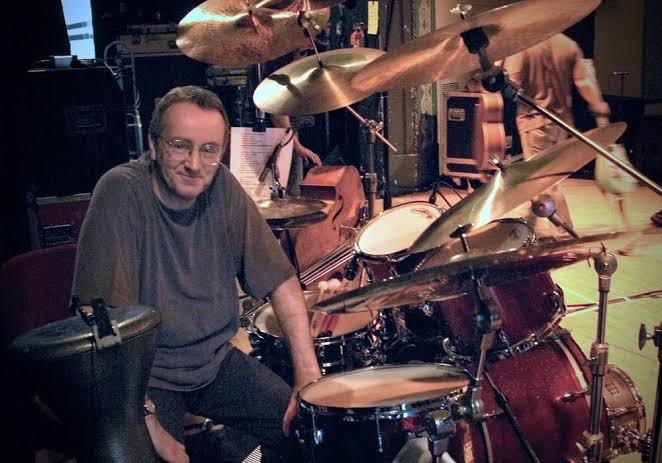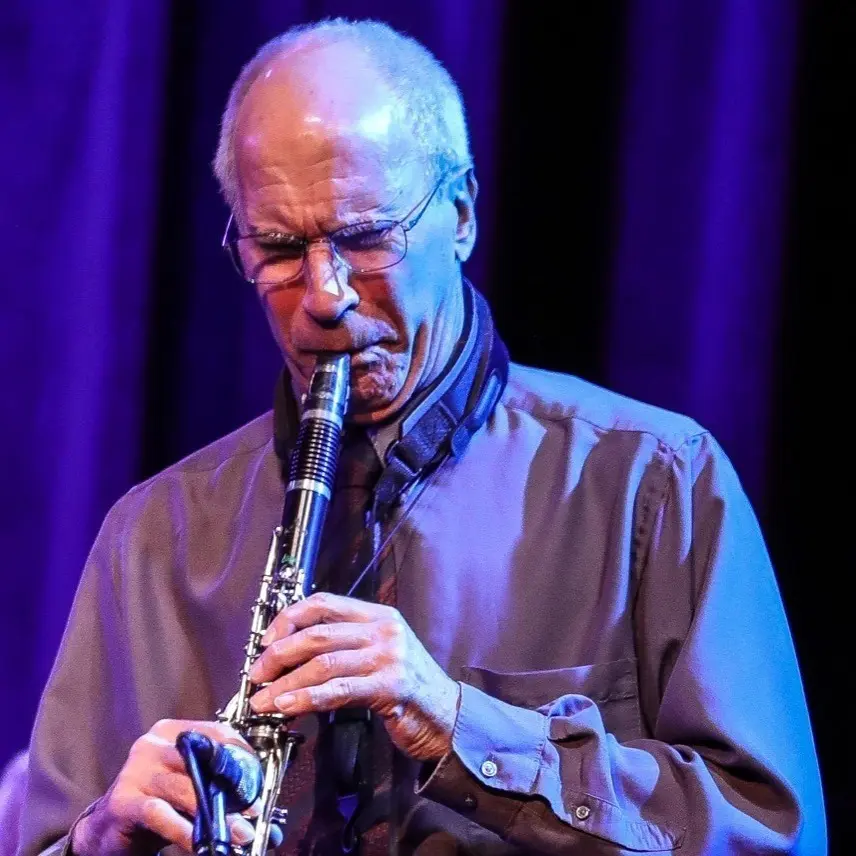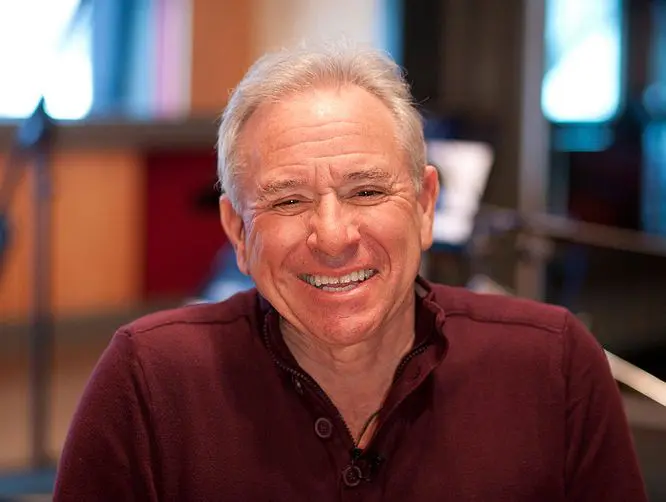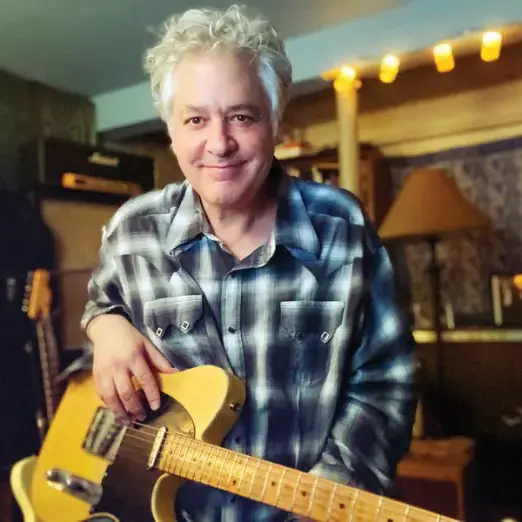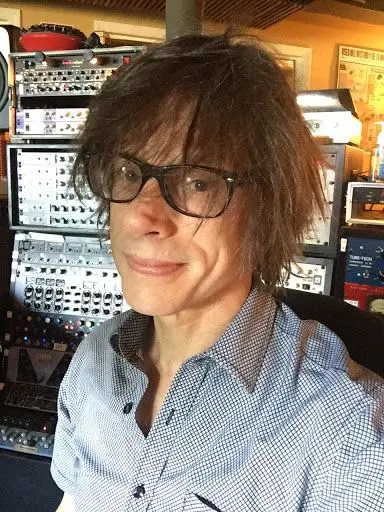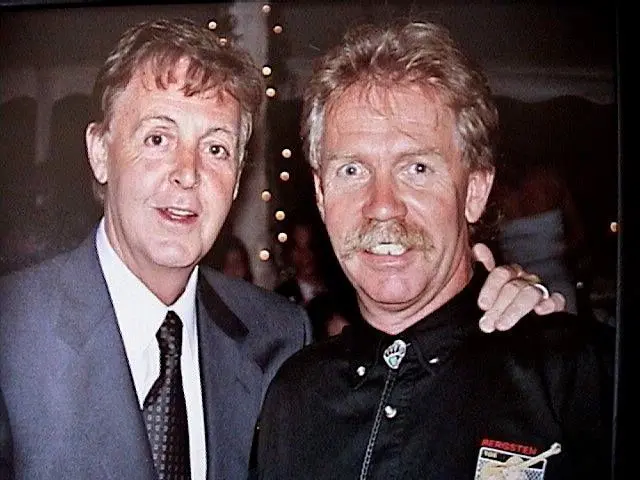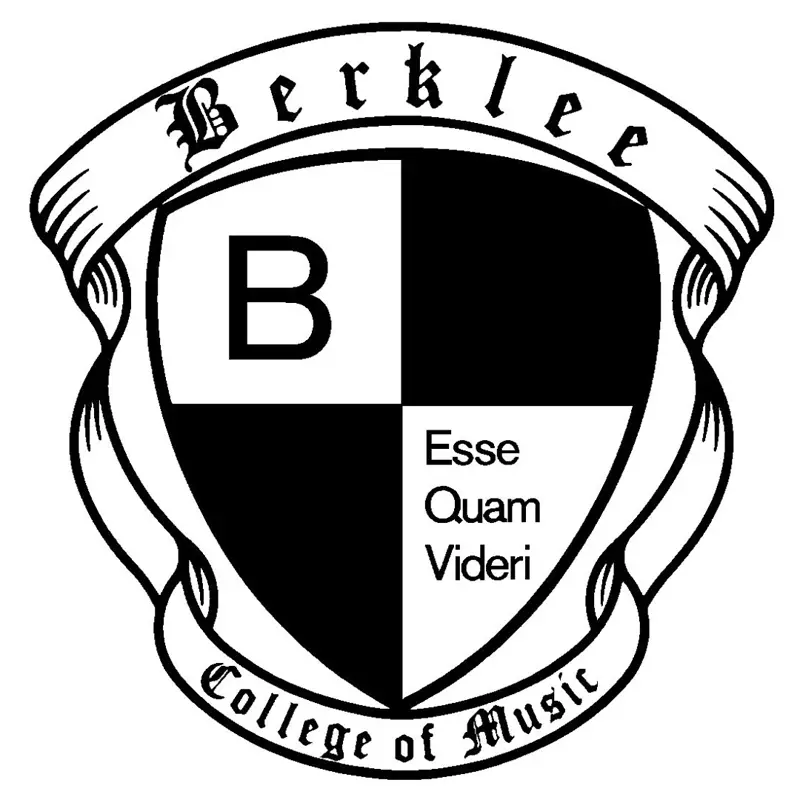Dave Mattacks
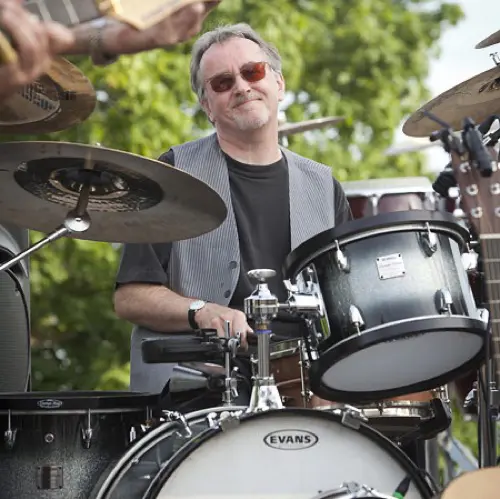
What do Paul McCartney, George Harrison, Jimmy Page, Elton John, Richard Thompson, Jethro Tull, Mary Chapin Carpenter, Brian Eno, Joan Armatrading, XTC and Yusuf Islam (Cat Stevens) all have in common? If your answer was that drummer Dave Mattacks has either performed and/or recorded with each of them, you’d be exactly right.
And while that cadre of well-known artists might seem limited compared to some other well-known kitmen, Mattacks has performed and/or recorded with enough musicians to earn a spot in the Guinness Book of Records. Not only that, he’s been living right here in New England for over 25 years, working with many local singer-songwriters and other artists as a session drummer and/or producing their recordings. How impressive would that be for a local artist to say that the drummer on their CD was the same guy that worked with a couple of ex-Beatles, Elton John, Jethro Tull and XTC?
FAIRPORT CONVENTION, MOVE TO NEW ENGLAND
Mattacks initially rose to recognition as a drummer in 1969, when he joined the iconic British folk-rock band Fairport Convention, with whom he worked with off and on until around 1997. In 1998, he and his wife left their native England to settle in Marblehead, Massachusetts, and his musical adventures and creative involvement in the local music scene continue to this day. Why move from the UK to the Boston area instead of to one of the many other renowned musical centers in the US? Let’s begin the journey with Mattacks’ reasons for the relocation and what’s been happening in his musical world since then.
Basically, Boston hit all the right buttons for him, he says. It had a strong blues, jazz and rock scenes and, of course, Berklee College of Music. It also had an impressive singer-songwriter scene and the vibe was more relaxed than in many other places, he says, so it fit his musical preferences perfectly. Mattacks is happy to be a sideman rather than the focal point and over the years he’s established close friendships with area musicians that have helped him get to where he is today.
Duke Levine, Mason Daring, Billy Novick, Tom Dube
Mattacks met local guitar wizard Duke Levine in the mid-‘90s while on tour with Richard Thompson, when local folk duo The Story were on the same bill and Levine was playing guitar for them. Then, some years later, they both ended up playing in Mary Chapin Carpenter’s band. Levine eventually introduced Mattacks to local film/TV composer Mason Daring and that’s how he ended up living in Marblehead. Further connections also led him to Billy Novick, with whom he collaborated on New England singer Debra Cowan’s EP Greening the Dark (which Mattacks also produced).
Through his work with Thompson, Mattacks met a local Boston sound engineer Tom Dube, who has a multitude of credits and who was handling monitors for Thompson at the time; today, he manage concert operations at Berklee and co-owns Dimension Sound Studio. When freelance work was leveling off in the UK for Mattacks, he reflected on Boston’s reputation for having a lot of singer-songwriters and approached Dube rather jokingly to ask whether there might be some local artist who’d be interested in an old folkie as a drummer. That resulted in occasional travels across the big pond to do long-distance session work.
Mike Barry, Super Genius, KBMG
Through those key individuals, Mattacks began to expand his local musical horizons. Soon after this move to the US, he met up with local guitarist and singer Mike Barry who runs Babyland Recording Studio in Medford. The two began a collaboration that started 20 years ago and continues to this day, to the point where Mattacks considers Barry to be his right-hand guy. “We talk the same musical language,” he says. “I like working with people who understand me, understand the language, and for me, that’s Mike. We trust each other completely. We get shit done.” Mattacks and Barry co-formed the band Super Genius, with Barry on rhythm guitar and vocals, Milt Reder on lead guitar, Dean Cassell on bass and Mattacks on drums – a rocking band if there ever was one. Mattacks was also part of the group KBMG, which played monthly at Chianti Restaurant and Lounge in Beverly.
Reputation, Production approach
According to Mattacks, his reputation is twofold – either “Oh you were the guy that played drums on those Paul McCartney and George Harrison albums!” or it was “Sorry, what was your name again?” – and he’s equally comfortable with both. Regardless of which perception of him you may have, word gets around on the local scene, and singer-songwriters seek Mattacks out from all angles, from album production to performing on their recordings and joining them on stage. According to Mattacks, working with Barry has been a most rewarding experience. “We spend many hours in the studio together where it’s basically the two of us laying down drum, guitar and keyboard tracks,” he says.
Mattacks’ says his production approach is simple: do several takes and, if it’s not happening, move on to the next song. If you keep on hammering that one tune too much, the spirit flies out of it. And this isn’t particular to Boston; it’s universal. One thing he says he learned from working alongside “Fifth Beatle” George Martin is to “do a handful of takes and commit,” which means if it’s not perfect then you just work around it. Legendary producer/engineer Glyn Johns used a very similar approach, meaning move to the next song after two takes. One of Quincy Jones’ engineers once talked about the unlimited number of tracks available in recording today, reportedly saying something along the lines of “It’s like painting a 747 with a Q-tip.” That’s how Mattacks works with Barry and other artists, he says, even in larger studios like Q Division and Woolly Mammoth Sound – “get it right but let’s get on with it.”
Comments on Boston scene, Drumming
As for how living in Boston over the last 25-plus years has changed him musically, Mattacks says it’s been both exciting and instructional. “Living in the area and working with so many different styles has been enormously inspiring, he says. “The first good chunk of my life was just trying to be as concise and exact as possible from a timekeeping and approach perspective and I’ve been spending the latter part of my years trying to move away from that – to get more grease into my playing and to be looser and less foursquare yet to be concise when needed. I became more aware of this in my 40s and 50s and realized there was a stiffness and since living in Boston this has really come to the forefront.”
As for drumming, he says his main goal is and has always been to be the best sideman he can be, supporting artists’ visions in the same way that his favorite drummers have. “I hope I’m getting better as an accompanist. It’s important to have good facility but there’s a bigger picture,” he says. “Levon Helm, Jim Keltner, Charlie Watts, Ringo Starr, Hal Blaine, they all knew how to create an arc from beginning to end of the song. Having that sense of increased consciousness around a song is something to aspire to and it’s something I continue to work on. Drummers Jeff Porcaro and Steve Gadd had that nailed. They had incredible facility but never let it get in the way of the song.”
(by Karl Sharicz)

